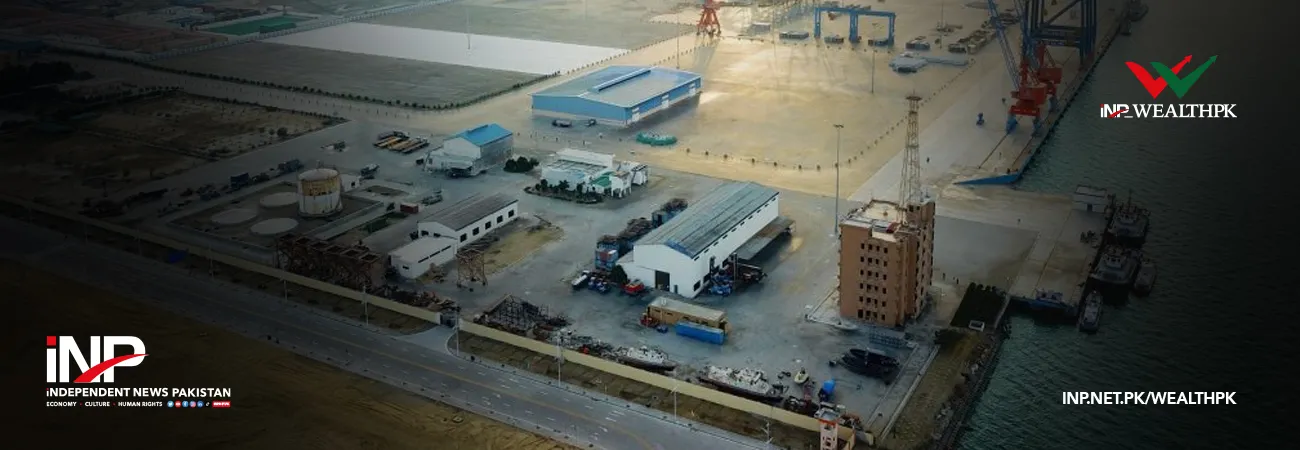INP-WealthPk
Amir Khan
Saudi Arabia and Pakistan have taken significant strides towards finalising a ground-breaking $14 billion modern oil refinery project. “This monumental project, which faced delays and uncertainties, is poised to reshape economic relations between the two nations in the year 2023,” says Muhammad Fayaz, Joint Secretary (Investment Facilitation) at the Ministry of Industry. Talking to WealthPK, he said: “The state-of-the-art oil refinery, with a staggering daily crude oil production capacity of 350,000 to 450,000 barrels, was initiated during the official visit of Saudi Crown Prince Muhammad bin Salman to Pakistan in 2019.” He further said, “This colossal project also encompasses integrated petrochemical facilities alongside the refinery.” Despite initial setbacks and hesitations, the project is now back on track, he explained, pointing out that Saudi Petroleum Minister Khalid Al-Falih had expressed his reservations over the project, but these had since been addressed.
Fayaz also pointed out that “several factors had contributed to the project’s uncertainty, including security concerns in Gwadar and the proximity of the site to Iran, just 90 kilometres from the Iranian border. At one point, there were discussions of relocating the project closer to Karachi, with Hub being considered as an alternate site.” He further explained that Pakistan recently unveiled a new policy to encourage foreign investment in the sector. “The policy offers a 7.7% customs duty exemption on all grades of petrol and diesel produced in any new deep conversion oil refinery with a minimum daily capacity of 300,000 barrels.” He said the exemption extended for 25 years from the date of refinery commissioning, covering customs duties, surcharges, withholding taxes, general sales tax, and other levies on imported equipment and materials for refinery projects, without any certification requirements from the Engineering Development Board.
“Initially, Saudi Aramco had a 30% equity stake in the proposed refinery but was reluctant to proceed without local equity partners to share the risks,” he added. “Pakistan swiftly organised local equity, with Pakistan State Oil (PSO) taking the lead with a 25% stake, and other local firms committing 5% to 10% stakes, surpassing the required equity share.” The joint secretary of investment facilitation of the Ministry of Industry also added that last July, four Pakistani public entities, including Oil and Gas Development Company Limited, PSO, Pakistan Petroleum Limited and Government Holdings Private Limited, had signed three memoranda of understanding (MoUs) to secure the necessary local equity for the project, thus easing Saudi investors’ concerns. Furthermore, Fayaz said Pakistan had successfully secured world-class refiner engineering, procurement and construction (EPC) partners for the project.
“Agreements were signed with China National Offshore Oil Corporation and Pakistan’s Monarch International, further bolstering confidence among Saudi investors.” He said that concerns about domestic fuel product demand had also been addressed. “With Pakistan’s current refining capacity at 20 million tonnes and consumption of around 11 million tonnes, the additional output from the Saudi joint venture will further expand capacity. Nevertheless, experts believe that Pakistan’s consumption is poised to grow, and there is ample incentive to add value to crude and export petroleum products.”He pointed out that India had recently made a windfall profit by importing cheap Russian crude oil, refining it, and then exporting the refined products to Europe and the United States. “The new Pak-Saudi joint venture refinery is also expected to be able to export 35-40% of its output.”
Fayaz also emphasised that Pakistan was reportedly in discussions with Abu Dhabi and Azerbaijan regarding another joint venture refining project, signalling the potential for even more foreign investments in the country, particularly in the mining sector. He underscored that there were indications that Saudi Arabia was also exploring investment opportunities in gold and copper mines in Pakistan. “Recent discussions at a mining conference involving senior executives from Saudi Arabia and Barrick Corporation have ignited speculation about Saudi Arabia’s potential involvement in Pakistan’s Reko Diq gold and copper mine.” “Mark Bristow, CEO of Barrick Gold Corp, which holds a 50% stake in the Reko Diq project, expressed openness to partnering with Saudi Arabia’s wealth fund following the conference,” he said. “This further underscores the burgeoning economic ties between the two nations.”
Credit: INP-WealthPk












